Filter by
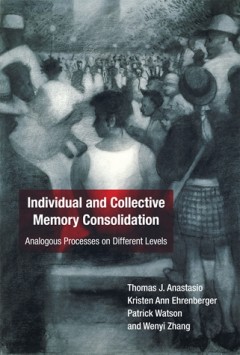
Individual and collective memory consolidation :analogous processes on differ…
An argument that individuals and collectives form memories by analogous processes and a case study of collective retrograde amnesia.We form individual memories by a process known as consolidation: the conversion of immediate and fleeting bits of information into a stable and accessible representation of facts and events. These memories provide a version of the past that helps us navigate the pr…
- Edition
- -
- ISBN/ISSN
- 9780262301664
- Collation
- 1 online resource (ix, 333 pages) :illustrations
- Series Title
- -
- Call Number
- -

Like-minded :externalism and moral psychology
This title presents a proposal that the cognitive processes that make us moral agents are partially constituted by features of our external environments.OCLC-licensed vendor bibliographic record.
- Edition
- -
- ISBN/ISSN
- 9780262298926
- Collation
- 1 online resource (xi, 282 pages) :illustrations
- Series Title
- -
- Call Number
- -

The Subtlety of Emotions
A Bradford book."AnnotationOCLC-licensed vendor bibliographic record.
- Edition
- -
- ISBN/ISSN
- 9780262268066
- Collation
- 1 online resource (xv, 611 pages) :illustrations
- Series Title
- -
- Call Number
- -
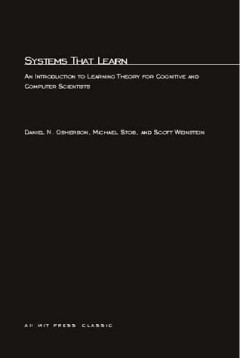
Systems That Learn: An Introduction to Learning Theory for Cognitive and Comp…
A Bradford book. Systems That Learn presents a mathematical framework for the study of learning in a variety of domains. It provides the basic concepts and techniques of learning theory as well as a comprehensive account of what is currently known about a variety of learning paradigms.Daniel N. Osherson and Scott Weinstein are at MIT, and Michael Stob at Calvin College."OCLC-licensed vendor bib…
- Edition
- -
- ISBN/ISSN
- 9780262256742
- Collation
- 1 online resource (ix, 205 pages).
- Series Title
- -
- Call Number
- -
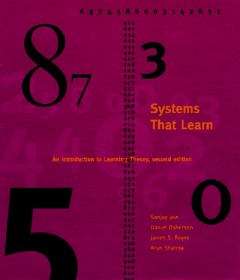
Systems That Learn: An Introduction to Learning Theory
A Bradford book."OCLC-licensed vendor bibliographic record.
- Edition
- 2nd ed.
- ISBN/ISSN
- 9780262276252
- Collation
- 1 online resource (xii, 317 pages) :illustrations.
- Series Title
- -
- Call Number
- -
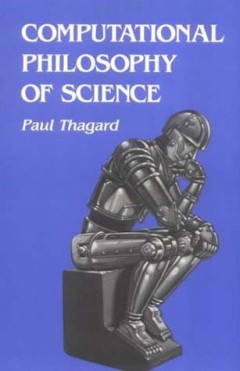
Computational Philosophy of Science
"A Bradford book."By applying research in artificial intelligence to problems in the philosophy of science, Paul Thagard develops an exciting new approach to the study of scientific reasoning. This approach uses computational ideas to shed light on how scientific theories are discovered, evaluated, and used in explanations. Thagard describes a detailed computational model of problem solving and…
- Edition
- -
- ISBN/ISSN
- 9780262284837
- Collation
- 1 online resource (xiv, 240 pages) :illustrations
- Series Title
- -
- Call Number
- -
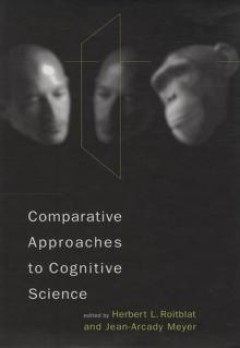
Comparative Approaches to Cognitive Science
"A Bradford book."OCLC-licensed vendor bibliographic record.
- Edition
- -
- ISBN/ISSN
- 9780262282512
- Collation
- 1 online resource (vii, 533 pages) :illustrations.
- Series Title
- -
- Call Number
- -
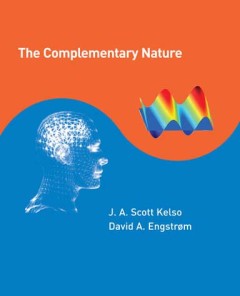
The Complementary Nature
"A Bradford book."Why do we divide our world into contraries? Why do we perceive and interpret so many of life's contraries as mutually exclusive, either/or dichotomies such as individual~collective, self~other, body~mind, nature~nurture, cooperation~competition? Throughout history, many have recognized that truth may well lie in between such polar opposites. In The Complementary Nature, Scott …
- Edition
- -
- ISBN/ISSN
- 9780262316286
- Collation
- 1 online resource (xviii, 317 pages) :illustrations
- Series Title
- -
- Call Number
- -
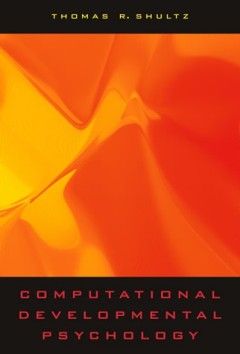
Computational Developmental Psychology
"A Bradford book."An overview of the emerging discipline of computational developmental psychology, emphasizing the use of constructivist neural networks.Despite decades of scientific research, the core issues of child development remain too complex to be explained by traditional verbal theories. These issues include structure and transition, representation and processing, innate and experienti…
- Edition
- -
- ISBN/ISSN
- 9780262303033
- Collation
- 1 online resource (338 pages)
- Series Title
- -
- Call Number
- -
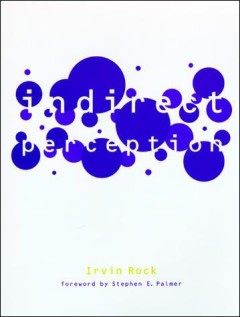
Indirect perception
This posthumous volume, the culmination of a long and distinguished career, brings together an original essay by the author together with a careful selection of previously published articles (most by Rock) on the theory that perception is an indirect process in which visual experience is derived by inference, rather than being directly and independently determined by retinal stimulation. Irv…
- Edition
- -
- ISBN/ISSN
- 9780262282475
- Collation
- 1 online resource (xxviii, 396 pages) : illustrations.
- Series Title
- -
- Call Number
- 150 IND
 Computer Science, Information & General Works
Computer Science, Information & General Works  Philosophy & Psychology
Philosophy & Psychology  Religion
Religion  Social Sciences
Social Sciences  Language
Language  Pure Science
Pure Science  Applied Sciences
Applied Sciences  Art & Recreation
Art & Recreation  Literature
Literature  History & Geography
History & Geography